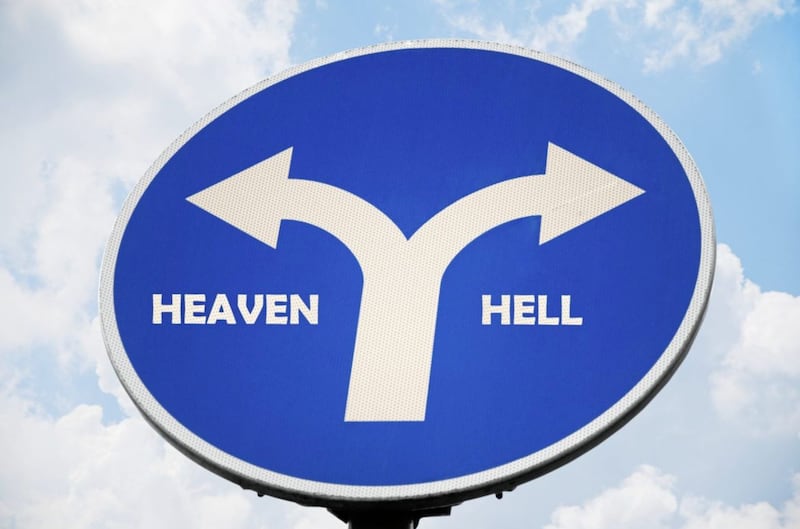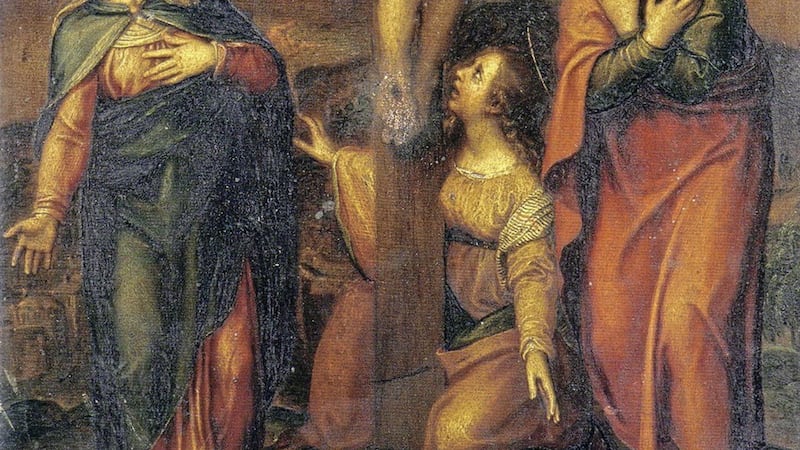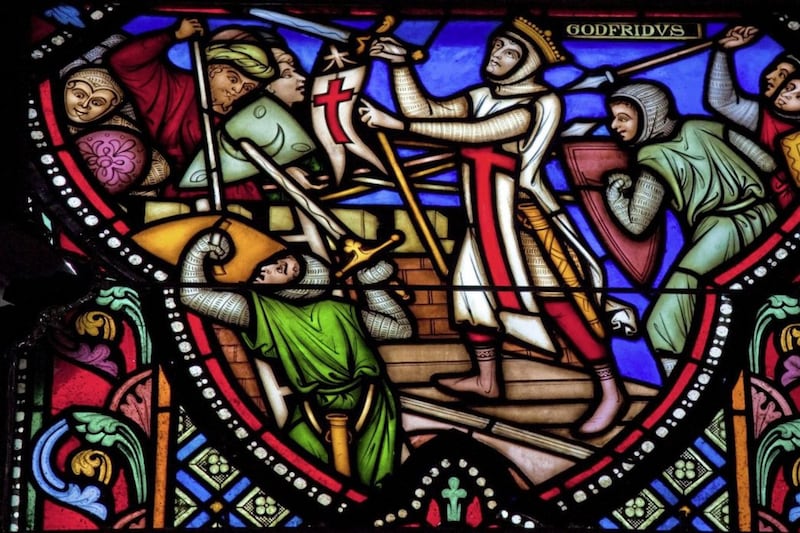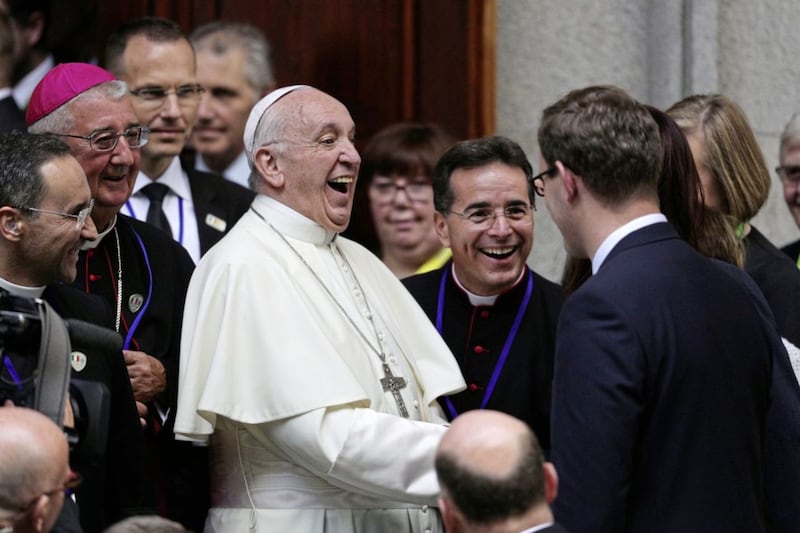THE quip for which Nietzsche envied Stendhal (1783-1842) - "God's only excuse is that he doesn't exist" - nicely encapsulates, whether intentionally or not, the dilemma facing those who indignantly reject theodicy as defending the indefensible.
Theodicy, a term coined by the German polymath Leibniz (1646-1716) and derived from two Greek words meaning 'God' and 'justice', refers to the attempt to reconcile the existence of evil in the world and the suffering flowing from it with belief in a good, all-powerful God.
The tension between faith and reason - the now-familiar twin-pronged approach to interpreting religion that entered the medieval western world apparently through its contact with Muslim thinkers - has always been particularly acute in the area described in 2 Thessalonians 2:7 as "the mystery of iniquity".
For evil does seem to present an insoluble problem to a religion like Christianity that exists in an ambiguous world of both beauty and pain, and yet proclaims belief in an omnipotent, good and benevolent God who created the world freely, that is to say, without any compulsion to do so.
A striking modern evocation of the problem of evil occurs in the play Danton's Death, by the German playwright, Georg Büchner (1813-37), at the point where one of the characters raises the question: "Why do I suffer?", and reacts with a theological response, albeit a negative one: "That is the rock of atheism."
There may be a punning allusion here to the 'rock' on which, for Christianity, the Church is built.
But be that as it may, the problem of evil and suffering seems to be a rock that can resist all the efforts of reason to erode it.
It is possibly the strongest, or at least the most persistently raised, argument against the existence of a good God, and hence the major exhibit in the case for atheism.
Yet the historical evidence doesn't quite seem to validate this view of things entirely.
To retain an expression like 'the problem of evil' in a world from which God has disappeared, is arguably to continue endorsing belief in God, even if only implicitly and unwittingly
A curious feature of the New Testament is the almost cavalier way it treats what we now tend to call the 'problem of evil'.
There is certainly a recognition in the New Testament writings, as already indicated, of the "mystery of iniquity", but the question of suffering itself seems to be approached with a kind of buoyant sense of assurance.
Suffering is unproblematically hailed as the royal road to salvation. "Rejoice that you share in the sufferings of Christ, so that you may be overjoyed at the revelation of His glory," we read, for example, in the First Letter of Peter (4:13).
This is clearly a far cry from modern reactions to suffering, which is diagnosed, for instance, by Albert Camus (1913-60) in his famous novel The Plague as a powerful token of humanity's absurd destiny.
For his part, the Romanian writer Emil Cioran (1911-95), who published mainly in French, anatomised incessantly and exuberantly the horrors of human existence.
The title of one of his best-known works, The Trouble with Being Born, gives a flavour of his approach.
The glaring contrast between the New Testament view of suffering and that of many moderns prompts the question: 'Given that the sources of human suffering have changed little since New Testament times, how can one explain the violently opposed reactions to suffering between then and now?'
No doubt the waning of belief in God in the Western world since the Enlightenment goes some way to explaining the two different attitudes to suffering just outlined.
For those who believe in God, the endurance of suffering can almost be regarded as a guarantee of salvation.
And negatively, a lively belief in, or fear of, the eternal sufferings of hell might well have relativised the sufferings of this life, and thus made them more bearable.

Ironically the demise of a robust belief in hell in the modern West might have had the unintended consequence of allowing suffering in this world to assume a greater significance than in the heyday of the Church.
Hell, in other words, in the modern world might have moved from the 'hereafter' to the 'here and now', thus rendering life for many a kind of 'hell on earth'.
That, however, still leaves the dilemma mentioned at the start unresolved.
For evil and suffering can surely only be a 'problem' in a world where there is belief in God to begin with.
Should God drop out of the equation, so seemingly would any credible or compelling distinction between good and evil, and the 'problem of evil' would, like God, also cease to exist.
If there is no God, in relation to what or whom is evil then evil?
Thus, to retain an expression like 'the problem of evil' in a world from which God has disappeared, is arguably to continue endorsing belief in God, even if only implicitly and unwittingly.
The dawning realisation that this exasperating conclusion was inescapable seems to have been what precipitated Nietzsche's final, frenzied exaltation of life as an unproblematic process of joyful suffering, symbolised in the mythical figure of Dionysus, the Greek god of unfettered ecstasy and destruction, as opposed to the Crucified Christ, whose kingdom is not of this world.
Martin Henry, former lecturer in theology at St Patrick's College, Maynooth, is a priest of the diocese of Down and Connor









